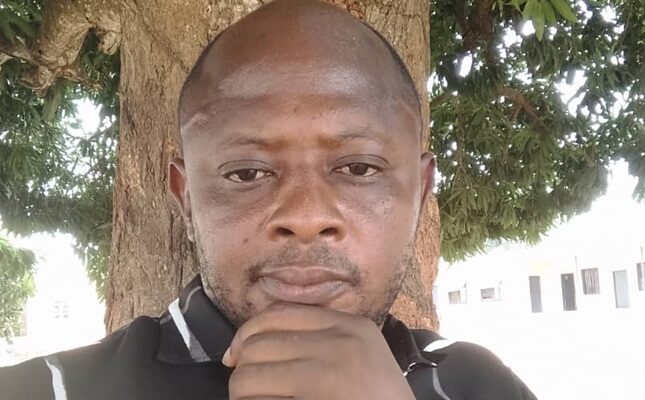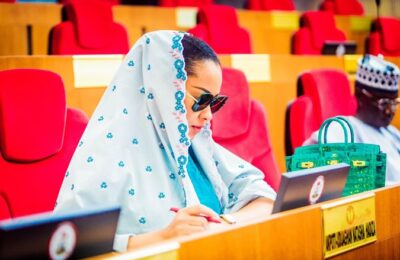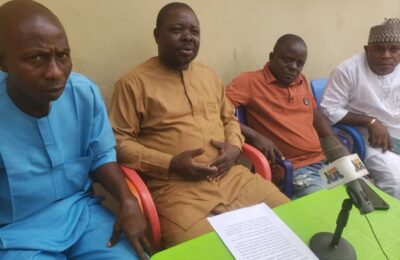Once upon a time, kinship embodied sanctuary. Family was a haven of trust, love, and shared destiny. Today, that sacred bond is in peril. In the fractured landscape of contemporary Nigeria—particularly within the Igala nation—familial ties have become strained conduits of envy, distrust, and spiritual apprehension. The time-honoured adage, “blood is thicker than water,” now rings hollow, often replaced by an uncomfortable truth: that strangers may offer the fidelity family has forfeited.
Among the Igala people, an unsettling behavioral pattern has calcified over time: the intentional act of traveling without informing one’s kin. The rationale? A deep-rooted superstition that relatives may invoke misfortune—accidents or spiritual sabotage—if they are privy to your movements. It is a silent indictment of familial love, wrapped in the fabric of fear. Individuals now navigate life as fugitives within their own genealogical web, fleeing the very souls that bore them.
But death requires no itinerary. In a country where tricycles (keke), motorcycles (okada), and unguarded pedestrian lanes are daily risks, does one truly imagine that concealment will confer safety? If malevolence resides in the heart of a loved one, it hardly needs advance notice to act. The real issue is not protection but paranoia; not discernment but distortion.
The Scriptures declare in 1 John 4:18, “There is no fear in love, but perfect love casts out fear: because fear hath torment.” What we now witness in many families is not the evidence of love, but its haunting absence—replaced by tormenting anxiety and self-imposed exile.
Take, for instance, Adaji—a young Igala graduate seeking greener pastures. He reached out to a cousin in Port Harcourt, who initially welcomed him with open arms. Yet, within weeks, Adaji noticed a chilling silence. The cousin, once helpful, became distant. Over palm wine with another relative, the truth surfaced: “Your cousin said if he empowers you, you’ll return home and build a bigger house than his. His name will rot.”
Let that revelation linger. In this narrative, familial support is perceived as self-sabotage. Lifting one’s kin becomes a threat to legacy. Love is reduced to a zero-sum game where one’s progress must eclipse another’s pride.
More harrowing is the experience of Sir Ojochegbe, a retired civil servant who, after years in Idah, visited his brother in Lagos. To his astonishment, his own brother introduced him to the younger generation as merely “a family friend.” Not an uncle. Not kin. Just a vague acquaintance. Ojochegbe left the Lagos the next day with more than silence—he departed with a severed identity. What killed him wasn’t age or illness, but erasure.
These are not isolated anecdotes. They are fragments of a wider social fracture—one that has rendered many familial networks emotionally bankrupt. Love has become transactional. Brotherhood has been replaced with covert competition. And where unity once stood, only suspicion remains.
Meanwhile, it is strangers—those with no shared blood—who offer true kinship. A man you meet on social media promotes your craft. A colleague champions your career. A woman from another tribe provides shelter when your cousin bolts the door. An Igbo axiom posits: “A man with people is richer than a man with money.” Increasingly, that richness is harvested outside the bloodline.
Why? Because ancestral fear has superseded ancestral wisdom. Many Nigerians continue to subscribe to the belief that prosperity must be hidden from relatives lest it attract spiritual attacks. One wealthy Igala businessman, when queried about his refusal to build in his village, retorted, “Do you want them to kill me?” Such paranoia masquerades as prudence. But in truth, it is trauma institutionalized.
The Bible rebukes this fear-driven ethos. Proverbs 21:31 reminds us, “The horse is made ready for the day of battle, but victory rests with the Lord.” Concealment does not equate to safety. Only divine sovereignty ensures protection.
This collective trauma—passed down like a family heirloom—has become a cultural stronghold. We now canonize selfishness as strategy. Instead of building bridges within our homes, we construct emotional bunkers. And the result? Villages that remain underdeveloped. Families that remain divided. Generations that remain stunted.
Renowned Nigerian preacher, Dr. Paul Enenche, once proclaimed, “Your help may not come from those who watched you grow, but from those who recognize where you are going.” Indeed, destiny is often validated not by heritage but by vision. Help may come from distant lands, but that does not excuse the silence of the household.
Even Christ redefined the concept of family. In Matthew 12:48, He asked, “Who is my mother, and who are my brothers?” He answered not with genealogy, but with purpose. True family, then, is forged not merely by blood, but by shared alignment and love without guile.
What, then, shall we teach our children? That elevation within the family is taboo? That to help your brother is to risk obscurity? Such beliefs belong not to progress, but to pathology. They ensure that while others build dynasties, we continue to breed distrust.
Bishop David Oyedepo once taught, “Until you celebrate your brother’s success as your own, your hands will remain too small to carry divine blessings.” This is not mere Christian counsel—it is a blueprint for collective advancement. Societies that rise together remain unshaken. Those who choose isolation inherit irrelevance.
To the one boarding a bus without informing his mother: shed that fear. To the sister hiding her promotion from family: reclaim your joy. To the cousin who erases his own bloodline for the sake of image: reconsider the legacy you wish to leave.
As the Igala proverb wisely states, “The palm tree that stands alone cannot reach the sky.” Family was designed to be a canopy, not a cage. A cradle, not a crucible. When that design is corrupted, God, in His mercy, provides strangers to fulfill what bloodline refused.
Yet, it must not end there. The mending of fractured bloodlines must become a national project—of healing, reconciliation, and renewal. The stranger may rise, yes—but the brother must return.
– Inah Boniface Ocholi writes from Ayah – Igalamela/Odolu LGA, Kogi state.
08152094428 (SMS Only)




